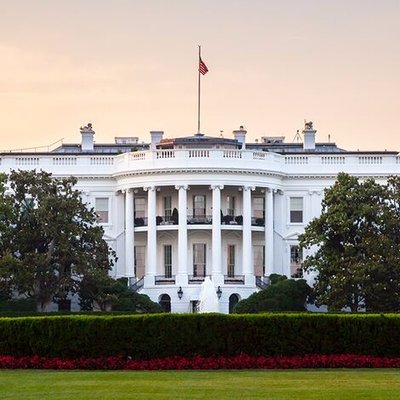eFocus News
Presidential Executive Order
The White House Initiative to Promote Excellence and Innovation
at Historically Black Colleges and Universities
|
EXECUTIVE ORDER
WHITE HOUSE INITIATIVE TO PROMOTE EXCELLENCE AND INNOVATION AT HISTORICALLY BLACK COLLEGES AND UNIVERSITIES By the authority vested in me as President by the Constitution and the laws of the United States of America, and in order to advance opportunities in higher education, it is hereby ordered as follows: Section 1. Policy. Historically black colleges and universities (HBCUs) have made, and continue to make, extraordinary contributions to the general welfare and prosperity of our country. Established by visionary leaders, America's HBCUs have, for more than 150 years, produced many of our Nation's leaders in business, government, academia, and the military, and have helped create a black middle class. The Nation's more than 100 HBCUs are located in 20 States, the District of Columbia, and the U.S. Virgin Islands, and serve more than 300,000 undergraduate, graduate, and professional students. These institutions are important engines of economic growth and public service, and they are proven ladders of intergenerational advancement. A White House Initiative on HBCUs would: advance America's full human potential; foster more and better opportunities in higher education; strengthen the capacity of HBCUs to provide the highest-quality education; provide equitable opportunities for HBCUs to participate in Federal programs; and increase the number of college-educated Americans who feel empowered and able to advance the common good at home and abroad. |
Sec. 2.
White House Initiative on HBCUs (a) Establishment. There is established the White House Initiative on Historically Black Colleges and Universities (Initiative), housed in the Executive Office of the President and led by an Executive Director designated by the President. (b) Mission and Functions. The Initiative shall work with agencies, private-sector employers, educational associations, philanthropic organizations, and other partners to increase the capacity of HBCUs to provide the highest-quality education to an increasing number of students. The Initiative shall have two primary missions: (i) increasing the private-sector role, including the role of private foundations, in: (A) strengthening HBCUs through enhanced institutional planning and development, fiscal stability, and financial management; and (B) upgrading institutional infrastructure, including the use of technology, to ensure the long-term viability of these institutions; and (ii) enhancing HBCUs' capabilities to serve our Nation's young adults by: (A) strengthening HBCUs' ability to equitably participate in Federal programs and exploring new ways of improving the relationship between the Federal Government and HBCUs; (B) fostering private-sector initiatives and public-private partnerships while promoting specific areas and centers of academic research and program-based excellence throughout HBCUs; (C) improving the availability, dissemination, and quality of information concerning HBCUs in the public policy sphere; (D) sharing administrative and programmatic best practices within the HBCU community; (E) partnering with elementary and secondary education stakeholders to build a "cradle-to-college" pipeline; and (F) convening an annual White House Summit on HBCUs to address, among other topics, matters related to the Initiative's missions and functions. (c) Federal Agency Plans. (i) The Secretary of Education (Secretary), in consultation with the Executive Director, shall identify those agencies that regularly interact with HBCUs. (ii) Each agency identified by the Secretary under subsection (c)(i) of this section shall prepare an annual plan (Agency Plan) describing its efforts to strengthen the capacity of HBCUs to participate in applicable Federal programs and initiatives. Where appropriate, each Agency Plan shall address, among other things, the agency's proposed efforts to: (A) establish how the agency intends to increase the capacity of HBCUs to compete effectively for grants, contracts, or cooperative agreements; (B) identify Federal programs and initiatives where HBCUs are not well represented, and improve HBCUs' participation in those programs and initiatives; and (C) encourage public-sector, private-sector, and community involvement in improving the overall capacity of HBCUs. (iii) The head of each agency identified in subsection (c)(i) of this section shall submit its Agency Plan to the Secretary and the Executive Director no later than 90 days after being so identified, and submit an updated Agency Plan annually thereafter. (iv) To help fulfill the objectives of the Agency Plans, the head of each agency identified by the Secretary may provide, as appropriate, technical assistance and information to the Executive Director to enhance communication with HBCUs concerning the agency's program activities and the preparation of applications or proposals for grants, contracts, or cooperative agreements. (v) Each agency identified by the Secretary shall appoint a senior official to report directly to the agency head on that agency's progress under this order, and to serve as liaison to the Initiative. (d) Interagency Working Group. There is established an Interagency Working Group, which shall be chaired by the Executive Director and shall consist of one representative from each agency identified by the Secretary pursuant to subsection (c)(i) of this section, to help advance and coordinate the work required by this order. |
Sec. 3.
|
Sec. 4.
|
Sec. 5.
|
